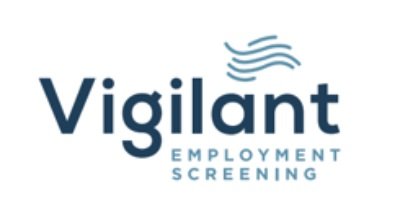EXECUTIVE HIRE PACKAGE
SSN Trace
Instant Social Security Number Trace is the starting point of any FCRA-compliant background check. SSN Trace information is obtained from consumer credit agencies and many other regularly updated and reliable databases. Information derived is the State and Year of Issue, current and prior address history, and alias names associated with the SSN. The address history is used to determine the appropriate jurisdictions that are to be searched for criminal records in name of the subject and any detected aliases.
Address Verification
Present and prior home address information accompanied by respective dates of residence.
US Criminal Database
US Criminal Database search is instantaneous and includes over 210 million results from all States. The data originates from Administration of Courts, County courthouses, Department of Corrections, Office of Foreign Assets, PRIORS and Denied Persons List, Statewide Repositories, Sex Offender Registers, etc. The data is regularly updated and expanded when additional information is released. This search, compliant with FCRA regulations, will always be used in conjunction with County Criminal Check in the specific jurisdiction identified.
County Criminal
Requires a direct search of the records of a county courthouse to determine if any felony and/or misdemeanor convictions exist. Vigilant highly recommends that the criminal background check be conducted in the jurisdiction that the applicant has lived and worked, or attended school, during the prior 7 years. Alias names provided and/or detected should also be checked for the highest level of accuracy.
County Civil
Civil cases are of a non-criminal nature where one party sues another for compensation for damages or monies owed. Contracts and tort cases are also initiated in civil courts. A contract case involves one party suing another party for violation or enforcement of an agreement. A tort case involves one party suing another party for an injury both intentional and/or unintentional conduct. An unintentional tort is typically a negligence action, such as an auto accident. Some States have a separate upper and lower court while some are combined. Lower courts involve lesser amounts of $10,000 while upper courts typically process cases with higher amounts. Civil records have very limited identifiers.
Federal Criminal
The 94 Federal District court system is separate from the county courthouse network. Federal offenses include crimes committed on federal property (government offices, national parks, etc.) and violations of the US Federal Criminal Statutes. Convictions could include possession and distribution of drugs, mail and wire fraud, tax evasion, kidnapping, embezzlement, immigration law offenses and other serious crimes.
Federal Civil
Civil cases are of a non-criminal nature. Cases heard in the US District Courts, typically are class action lawsuits, lawsuits instigated by the federal government, or lawsuits that cross several State jurisdictions. Unlike criminal records, civil records have very limited identifiers of the defendant/plaintiff.
Credit Report
A Credit Report for employment purposes does not detail an applicant’s FICO credit score, but contains name and address, any tax liens, public records, collections, the person’s rating of payment history, high and low credit amounts, detailed indebtedness, and any negative credit activities. Typically, credit reports are used as a background screen for applicants with fiduciary responsibility and in a management position. An Employee Credit Report does not impact a person’s potential credit score when it is obtained.
Driving History
A Motor Vehicle Report (“MVR”) reports an individual’s State driving history for 3 to 7 years. The status of the license is provided and violations, suspensions, fines, convictions are detailed. A Driving History might reveal a conviction that may not be present in a criminal history search, such as a DUI (Driving under the Influence) conviction. Almost all States provide instantaneous reports.
Education Verification
Using the information provided by the applicant, verification is sought of the dates of attendance and graduation, and degree/diploma attained at an educational institution. The most common identifiers used for this verification are:
name used while attending
dates of attendance
full graduation date
type of degree
date of birth
Employment Verification
This search verifies the employment information provided by the applicant. Typical areas that are verified include: dates of employment, position, job duties, salary, type of employment (full, part time, temporary, seasonal), reason for leaving, and rehire status. The policy of many companies may require a release form, signed by the applicant, to be able to obtain the information.
Sex Offender Register
Sex Offender Register lists individuals who have been convicted of a felony and/or misdemeanor sexual offense and are required to register in the State in which they reside. Results from all 50-State Registers are available instantaneously.
Terrorist List (“OFAC”)
Office of Foreign Assets Control (“OFAC”) maintains a list of individuals and companies owned or controlled by, or acting for or on behalf of, targeted countries. It also lists individuals, groups, and entities, such as terrorists and narcotics traffickers designated under programs that are not country-specific. Collectively, such individuals and companies are called "Specially Designated Nationals" or "SDNs." Their assets are blocked and U.S. persons are generally prohibited from dealing with them.
